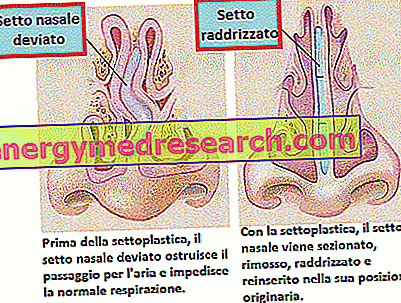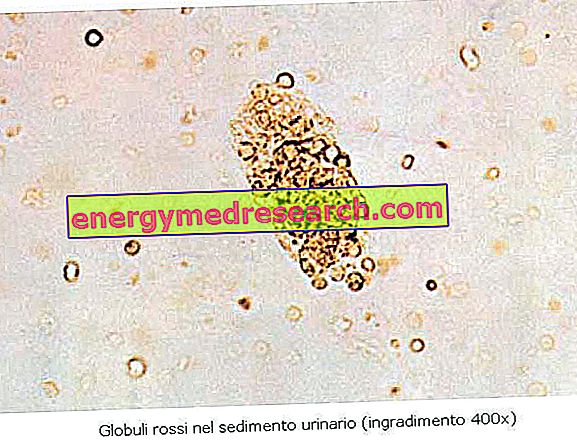Related articles: Halitosis
Definition
Halitosis is a symptom that manifests itself in an odor of unpleasant, frequent or persistent breath.
Most often this problem is the result of inadequate or poor oral hygiene and gum or periodontal diseases.
In such contexts, halitosis results from the fermentation of food particles by anaerobic Gram-negative bacteria within the oral cavity, which produce volatile sulfur compounds, such as hydrogen sulfide and methyl mercaptan. The causative microorganisms can be present in the periodontal pockets around the dental elements or they can be deposited on the posterior dorsal part of the tongue.
The factors that contribute to the excessive growth of the micro-organisms responsible for halitosis include a reduction in the flow of saliva, stagnation and an increase in the salivary pH; these conditions can be due to parotid diseases, oral carcinomas, Sjögren's syndrome and intake of anticholinergics and other drugs that cause dry mouth.
Gingivostomatitis and tonsillitis can cause halitosis and are associated with pain, malaise and bad taste in the mouth. Periodontal disease, on the other hand, causes unpleasant breath and bleeding gums, either spontaneously or after minor traumas.
Other frequent causes of halitosis are smoking habits, the consumption of alcoholic beverages and the ingestion of particularly aromatic foods (such as garlic and onion).
Numerous systemic diseases produce volatile substances detectable in the breath, although not all odors are particularly unpleasant and pungent. For example, ketoacidosis causes a sweetish or fruity odor similar to acetone; it can be caused by dietary errors (fat abuse, fasting or diabetes), fever reaction, vermin, or excessive physical effort.
A late sign of liver failure is, instead, the so-called "fetor hepaticus", that is a sweetish and slightly sulphurous breath, accompanied by tremors, confusion and coma.
Chronic renal failure causes a smell of breath similar to that of urine or ammonia; this symptom is associated with yellowish cutaneous color, confusional state, coarse muscular contractions, muscular hypotrophy, anuria and arterial hypertension.
In some cases, halitosis is the expression of a slow and insufficient digestive process, which compromises the normal transformation of food and promotes stagnation, fermentation or intestinal putrefaction.
The fecal halitosis is a late sign of bowel obstruction, often preceded by gastric and biliary vomiting, with intermittent cramping pain in the periombelical region, abdominal distention, diarrhea or constipation. In the child, a common cause of the unpleasant breath is intestinal parasitosis.
Other extraoral diseases associated with this manifestation are pulmonary infections (eg abscesses, bronchiectasis or foreign bodies). Bad breath can also be associated with the presence of foreign nasal bodies, nasopharyngeal carcinoma, sinus infections and Zenker's diverticulum.
Possible Causes * of Halitosis
- Achalasia
- acetonaemia
- Metabolic acidosis
- Hypertrophic adenoids
- adenoiditis
- Gingival abscess
- Lung Abscess
- Bronchiectasis
- Tonsillary calculations
- Caries
- Alcoholic ketoacidosis
- Diabetic ketoacidosis
- Colitis
- Spastic colitis
- Diabetes
- Esophageal diverticula
- Zenker's diverticulum
- Epulis
- pharyngotonsillitis
- Cystic fibrosis
- Gastritis
- Gingivitis
- Indigestion
- Kidney failure
- Bowel obstruction
- oxyuriasis
- Periodontitis
- Mumps
- Pneumonia
- pulpitis
- Rhinitis
- Sjögren syndrome
- Sinusitis
- Tonsillitis
- Peptic ulcer



